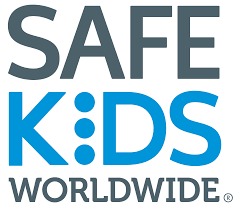Travel vaccines for babies
Nothing beats traveling with your family as a means of bonding. However, when babies get ill, that’s another story. Perhaps it’s about time that you think ahead when traveling overseas with baby vaccinations.
Be prepared for childhood diseases before you travel abroad. Although some diseases such as diphtheria, polio, and pertussis are now practically nonexistent in well-developed countries they still exist in many developing and more so under-developed countries. If your baby gets in contact with the locals they could be prone to acquiring diseases. Furthermore, there could be an unexpected outbreak of baby illness in well-developed areas you are most likely to travel to. Take into account that immunizations for babies traveling abroad are practically essential in the early stage of infant-hood.
Pay a visit to your child’s pediatrician a few weeks before your journey. The doctor will prescribe the right immunizations for your baby considering several factors like the health condition and age of your baby, the destination, the kind of traveling you will be doing and the duration.
If possible, children should complete their routine vaccines on the prescribed schedule before traveling overseas. Chances are your child will be vaccinated against several of the diseases prevalent in the area of your destination. Besides infant’s early routine vaccinations like pertussis, polio, and diphtheria, children should also receive Hepatitis A, Hepatitis B, Tetanus, Rotavirus, Measles, Pneumococcal Infections, Haemophilus, Influenza type B (Hib), MMR, Varicela, Neisseria Meningitidis, Streptococcus Pneumoniae, and human Papillomavirus. It depends on your travel itineraries that your doctor may recommend in addition to routine immunizations, that you and/or your kids be administered of vaccinations against Typhoid, Yellow Fever, Japanese B Encephalitis, Meningitis, and Rabies.
Effectivity begins the same day or starting from the 4th day for some vaccines while others may take more weeks to absorb the potency like that of the Yellow Fever. Unfortunately, other estimates could only last up to 10 years, and there are no booster doses currently mandated. Approximately 90-95% of people get “protection” from vaccines as accounted by the World Health Organization.
A guaranteed protection from a vaccine takes up to 14 days. In some cases, two or more vaccinations several weeks apart must be administered to achieve maximum protection. However, because of time constraints and because you need to speed up the normal travel vaccinations for babies, you can safely subject infants to earlier doses or shorten the intervals in between. Shortcuts like these are acceptable although may not yield optimal results. Extra doses can be administered later if necessitated. Vaccinations for Cholera, Diphtheria, Polio, Hepatitis A and Hepatitis B (or a combination of A&B) and Tetanus Booster are usually free on NHS. Avail of existing free baby travel vaccinations in your locality for maximum savings.
Besides your baby’s regular doctor, you may want to consult a pediatrician who specializes in travel vaccinations for babies and has acquired the latest information about diseases that are threats in places you are about to visit. The Centers for Disease Control and Prevention may also issue recommendations for baby travel vaccinations. Parents should be aware that some children, particularly infants, may be too young to receive certain vaccines and that the risk of bringing them along is at stake. Therefore, pack along a bit of caution and bear in mind the tips above to avoid mishaps.



![The Lowdown on Airport Programs [A Guide for Traveling Families]](https://kidmoto.taxi/wp-content/uploads/2023/09/word-image-15769-1-500x383.jpeg)





